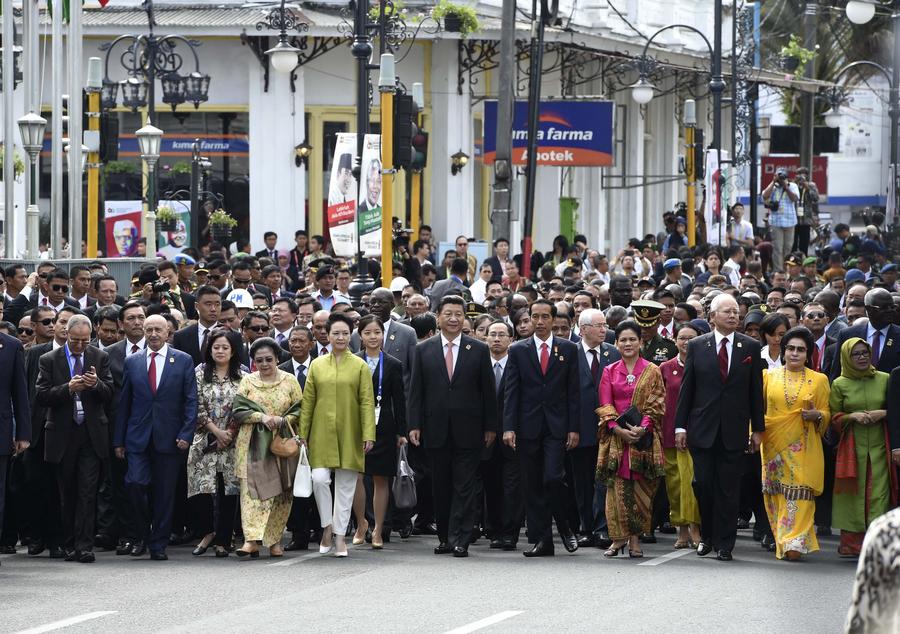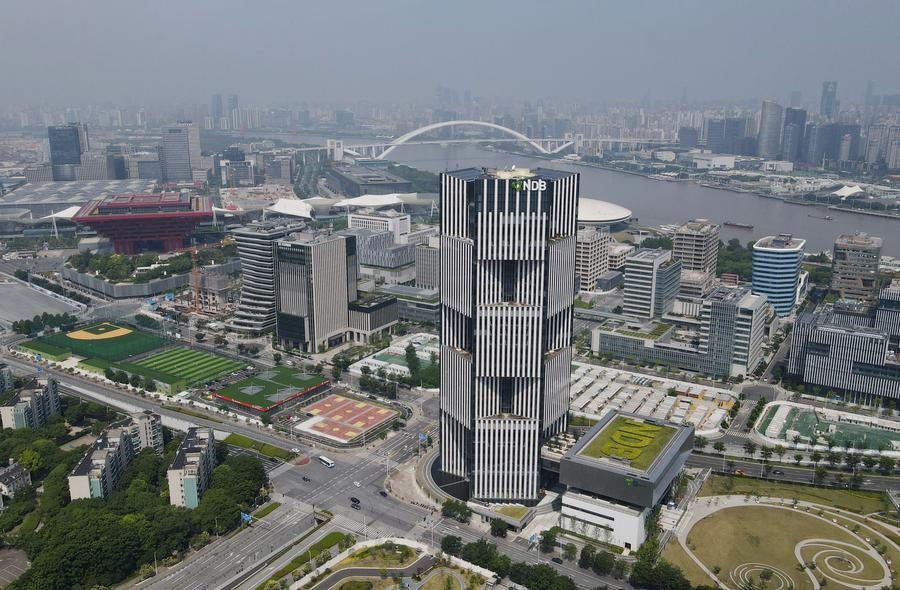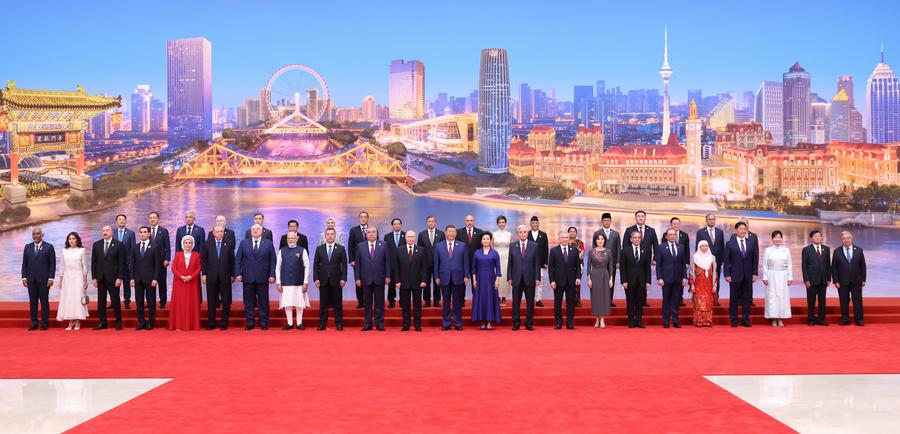Chinese President Xi Jinping and his wife, Peng Liyuan, hosted a banquet in China’s port city of Tianjin to welcome international guests who are here to attend the Shanghai Cooperation Organization Summit on Aug. 31, 2025. (Xinhua/Huang Jingwen)
At the just concluded SCO summit in Tianjin, Chinese President Xi Jinping put forward the Global Governance Initiative.
The aim of proposing the initiative is to “work together with all like-minded countries to resolutely safeguard the purposes and principles of the UN Charter, and build a more just and equitable global governance system,” he explained.
Xi’s proposing the initiative stands as a reflection of Xi’s sharp perception of the profound transformations that are reshaping the global landscape.
“The collective rise of the Global South,” Xi observed, “is a distinctive feature of the great transformation across the world.” He has pledged that China will always keep the Global South in its heart, and maintain its roots in the Global South.
In April 2015, the Indonesian city of Bandung — once called the “Paris of Java” — witnessed a moment where the past and present converged.
From the 19th-century Savoy Homann Hotel, leaders of nearly 100 nations set out toward the Independence Building, retracing the footsteps of a generation that had defied colonial domination six decades earlier.
At the head of the procession walked Xi and then Indonesian President Joko Widodo. It was a living echo of the 1955 Bandung Conference, the first meeting of Asian and African nations free of colonial powers, now hailed as a landmark event in the rise of the Global South.

Through perseverance and huge sacrifice, emerging markets and developing countries have succeeded in gaining independence and shaking off the yoke of colonialism. These nations have been seeking development paths tailored to their own national circumstances rather than following models imposed by the outside. “Everything we do is to deliver better lives to our people,” Xi once said.
Driven by Xi’s global vision, the legacy born in Bandung is quickly becoming a reality, where developing nations speak not as isolated voices but as a united force.
The historic expansion of BRICS and the creation of forums linking China with Africa, Latin America, the Arab world and ASEAN all bear Xi’s imprint, offering the Global South channels to coordinate and amplify their say in global affairs.
In April 2025, during a visit to the BRICS New Development Bank in the China’s financial hub Shanghai — the first multilateral bank initiated and led by developing nations — Xi called it a pioneering effort for the Global South to join forces in improving global governance.

The origins of his vision can be traced back to Xi’s youth. He pored over The Communist Manifesto, Das Kapital and other Marxist classics, laying the intellectual foundation for what he later described as his abiding belief: “Marxism is broad and profound; ultimately, it is about seeking liberation for humanity.”
Decades on, as humanity is facing changes rarely seen in a century, Xi keeps pondering on the world: “What has happened to the world and how should we respond?”
Xi first proposed building a community with a shared future for humanity in Moscow during his inaugural overseas visit as Chinese president. Two years later, on the stage of the UN headquarters in New York, Xi elaborated his thoughts on building such a community that involves partnerships, security, development, civilization and ecological cooperation.
Xi’s vision of building a community with a shared future reminded Malaysian Prime Minister Anwar Ibrahim of an aphorism from the renowned ancient Chinese philosopher Confucius.
“Si Hai Zhi Nei Jie Xiong Di — within the four seas, all men are brothers,” Anwar uttered the maxim in Chinese during his reception held for Xi in Putrajaya this April.
“President Xi is known as a capable political leader, as an economist, but more so and prouder profoundly, a great human being with strong, clear vision and understanding civilizational of values,” he said.
Over the years 2021 to 2023, Xi launched the Global Development Initiative, the Global Security Initiative, and the Global Civilization Initiative. Along with the Global Governance Initiative, these proposals are designed to enhance and improve the present international system.
Tajik President Emomali Rahmon has said that Xi is a great leader with profound historical insight and a broad global vision. He said, “The many global initiatives he has proposed are conducive to advancing peace and progress for humanity.” Enditem
Source: Xinhua
Share Us



